The postpartum period is a transformative time filled with joy, challenges, and significant physical and emotional changes. As your body recovers from childbirth, having the right postpartum essentials can make a world of difference in your comfort and healing process. Whether you’ve had a vaginal delivery or a C-section, this comprehensive guide will help you navigate the fourth trimester with confidence by highlighting the must-have products for your postpartum recovery journey.
We’ve consulted with healthcare professionals and gathered insights from experienced mothers to bring you a curated list of postpartum essentials that truly make a difference. From physical recovery aids to emotional support resources, we’ve covered everything you need to focus on what matters most—bonding with your new baby and taking care of yourself.
Understanding Longer-term Postpartum Changes
Woman experiencing postpartum physical changes while holding her baby
The postpartum period extends well beyond the first few weeks after childbirth. Your body undergoes significant changes as it recovers from pregnancy and delivery, with some adjustments lasting several months. Understanding these longer-term changes can help you prepare mentally and physically for what lies ahead.
During the first six weeks postpartum, you’ll experience vaginal bleeding (lochia) as your uterus sheds its lining. This bleeding gradually decreases in intensity but may continue for up to six weeks. Your uterus will also be contracting to return to its pre-pregnancy size, which can cause cramping sensations known as afterpains.
Hormonal fluctuations continue throughout the postpartum period, affecting everything from your mood to your skin and hair. Many women experience hair loss, night sweats, and skin changes during this time. Your pelvic floor muscles will also be recovering, which may lead to issues with bladder control or discomfort.
For breastfeeding mothers, your breasts will undergo their own changes as your milk supply establishes. This can include engorgement, leaking, and sensitivity as your body adjusts to feeding your baby.
Complete Postpartum Recovery Kit
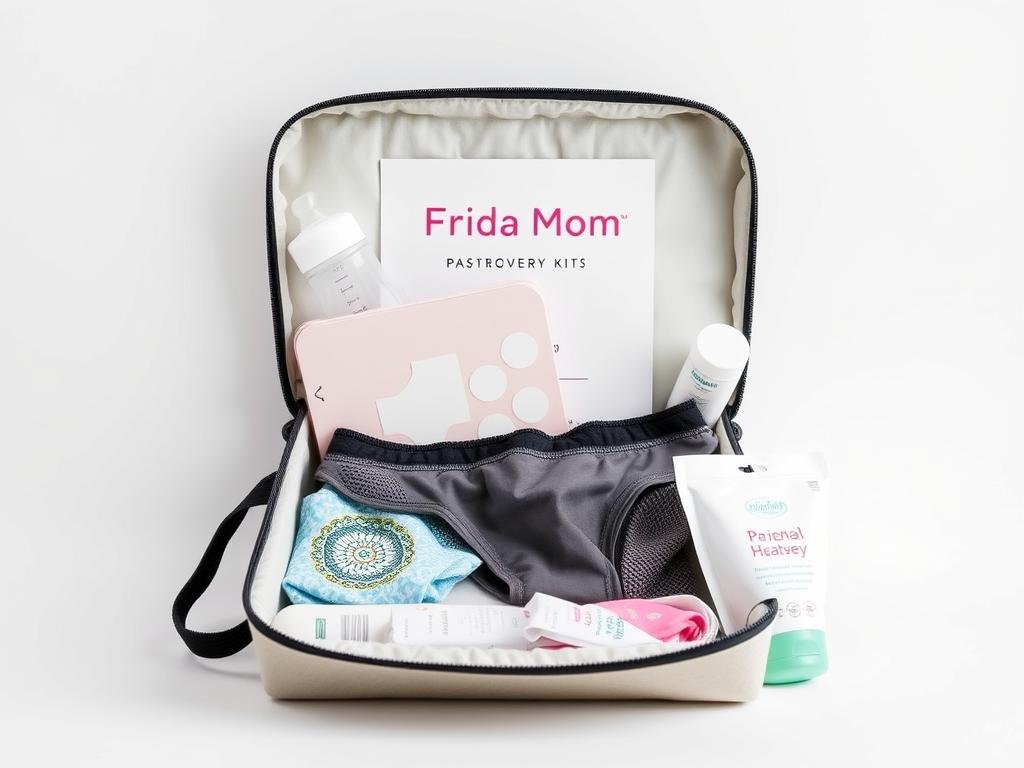
Frida Mom Postpartum Recovery Kit with essential recovery items
The Frida Mom Postpartum Recovery Kit includes everything you need for healing after vaginal delivery: instant ice maxi pads, perineal cooling pad liners, disposable underwear, perineal healing foam, and a convenient storage caddy. This all-in-one solution simplifies your recovery by providing hospital-grade products designed specifically for postpartum healing.
Individual Variation in Postpartum Recovery

Diverse group of new mothers with different postpartum experiences
Every woman’s postpartum journey is unique. Factors such as your type of delivery, previous pregnancies, overall health, and support system all influence how your body recovers. Some women may feel relatively normal within weeks, while others might take months to fully heal.
If you had a vaginal delivery with tearing or an episiotomy, your recovery will include healing of the perineal area. This can cause discomfort when sitting, using the bathroom, or moving around. C-section deliveries involve recovering from major abdominal surgery, with different challenges including incision care and restricted movement.
Your age and physical condition before pregnancy also play a role in recovery. Younger mothers and those who maintained physical activity during pregnancy often recover more quickly, but this isn’t always the case. Genetic factors can also influence how your body responds to the postpartum period.
It’s important to remember that comparing your recovery to others isn’t helpful. Listen to your body, follow your healthcare provider’s guidance, and give yourself grace during this healing time.
Perineal Healing Essentials
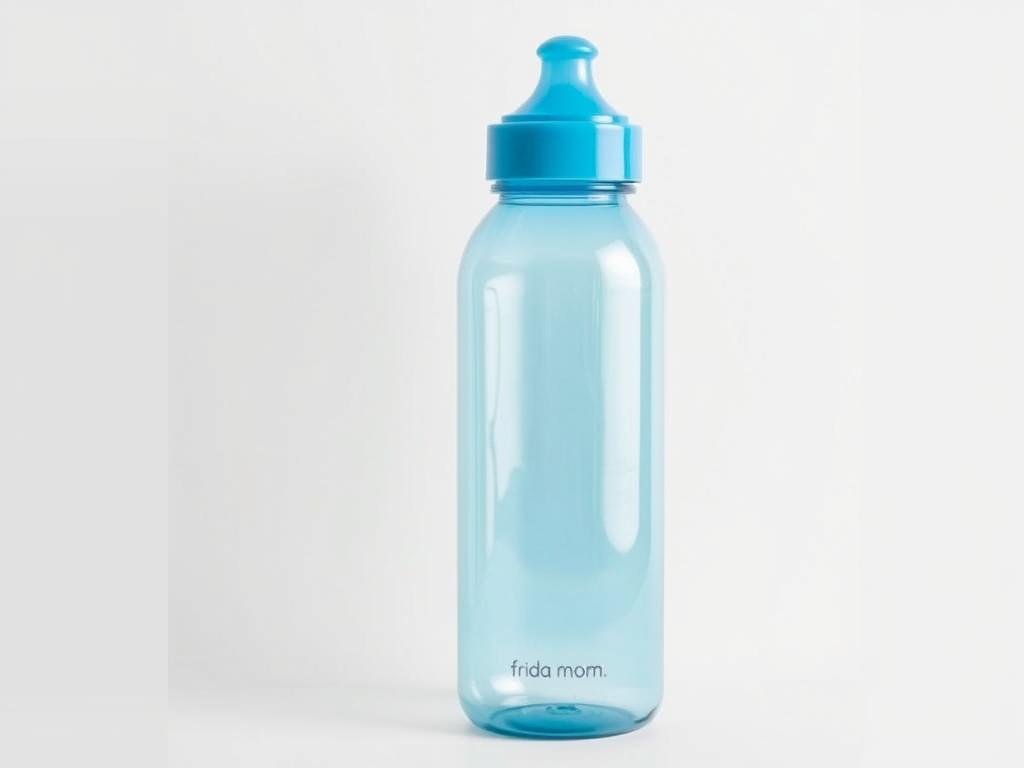
Frida Mom Upside Down Peri Bottle for postpartum perineal care
The Frida Mom Upside Down Peri Bottle features an angled neck design that makes it easier to clean your perineal area after childbirth. This ergonomic bottle holds 10 ounces of water and provides gentle, targeted relief for sensitive areas, making bathroom visits more comfortable during your recovery.
Emotional Well-being During Postpartum
The emotional aspects of postpartum recovery are just as important as the physical ones. Hormonal fluctuations, sleep deprivation, and adjusting to your new role can trigger a range of emotions from joy and excitement to anxiety and sadness.
Many new mothers experience “baby blues” in the first two weeks after delivery, characterized by mood swings, tearfulness, anxiety, and irritability. These feelings typically resolve on their own as hormones stabilize. However, about 15-20% of women develop postpartum depression, which involves more severe and persistent symptoms that interfere with daily functioning.
Creating a support system is crucial for emotional well-being during this time. This might include your partner, family members, friends, or a postpartum doula who can provide practical help and emotional support. Don’t hesitate to accept offers of assistance with household tasks, meal preparation, or baby care so you can rest and recover.
Self-care practices are also essential for emotional health. Simple activities like taking a shower, going for a short walk, or enjoying a cup of tea while your baby naps can help you feel more like yourself. Connecting with other new mothers through support groups or online communities can provide validation and decrease feelings of isolation.
Postpartum Comfort Essentials
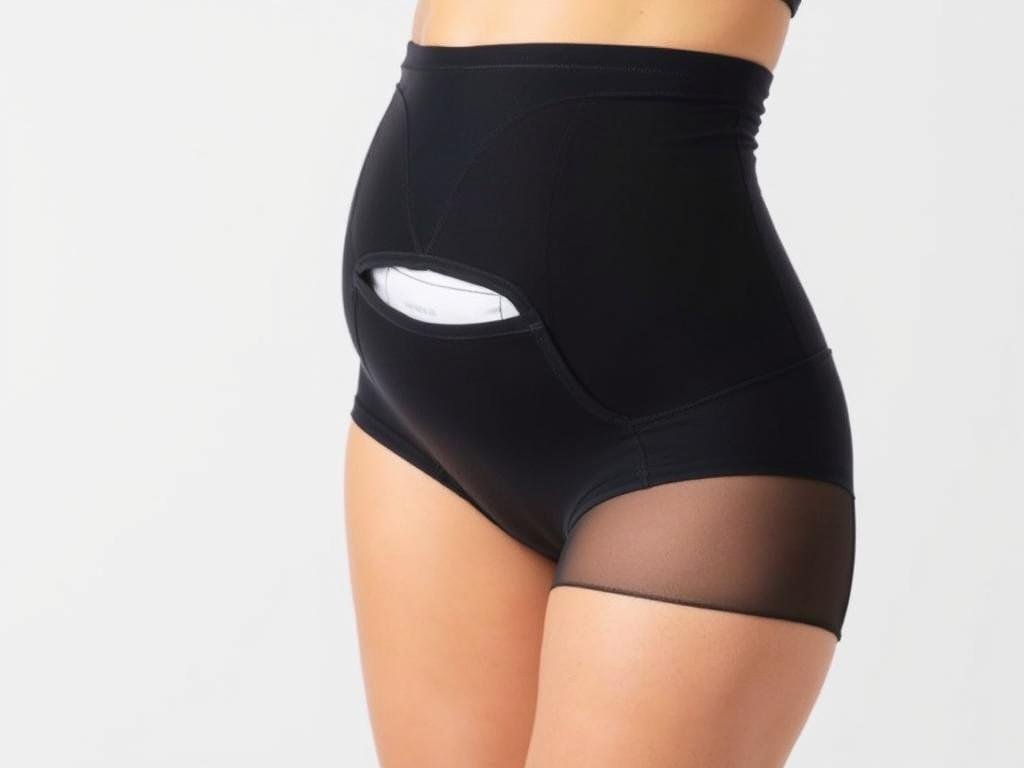
Nyssa Fourthwear Postpartum Recovery Underwear with ice/heat pack pocket
Nyssa Fourthwear Postpartum Recovery Underwear features a built-in pocket that holds an ice or heat pack exactly where you need relief. Made from soft, breathable fabric with a high-waisted design, these underwear provide gentle support while accommodating postpartum bleeding. The black color helps hide stains, making these a practical and comfortable essential for your recovery.
Essential Postpartum Care Practices
Proper postpartum care is essential for healing and preventing complications. Your healthcare provider will give you specific instructions based on your delivery, but there are some general practices that benefit most new mothers.
For perineal care after a vaginal delivery, using a peri bottle to rinse the area with warm water after using the bathroom helps keep the area clean and reduces discomfort. Applying ice packs to the perineum for the first 24-48 hours can reduce swelling and numb pain. After that, warm sitz baths can promote healing and provide relief.
If you had a C-section, keeping your incision clean and dry is crucial. Follow your provider’s instructions for wound care, and watch for signs of infection such as increased redness, swelling, or discharge. Wearing supportive underwear that doesn’t rub against your incision can increase comfort.
Regardless of delivery type, rest is a critical component of recovery. Try to sleep when your baby sleeps, and limit visitors and activities in the early weeks. Proper nutrition and hydration support healing, so focus on nutrient-dense foods and drinking plenty of water, especially if you’re breastfeeding.
Durable Breast Therapy Solution
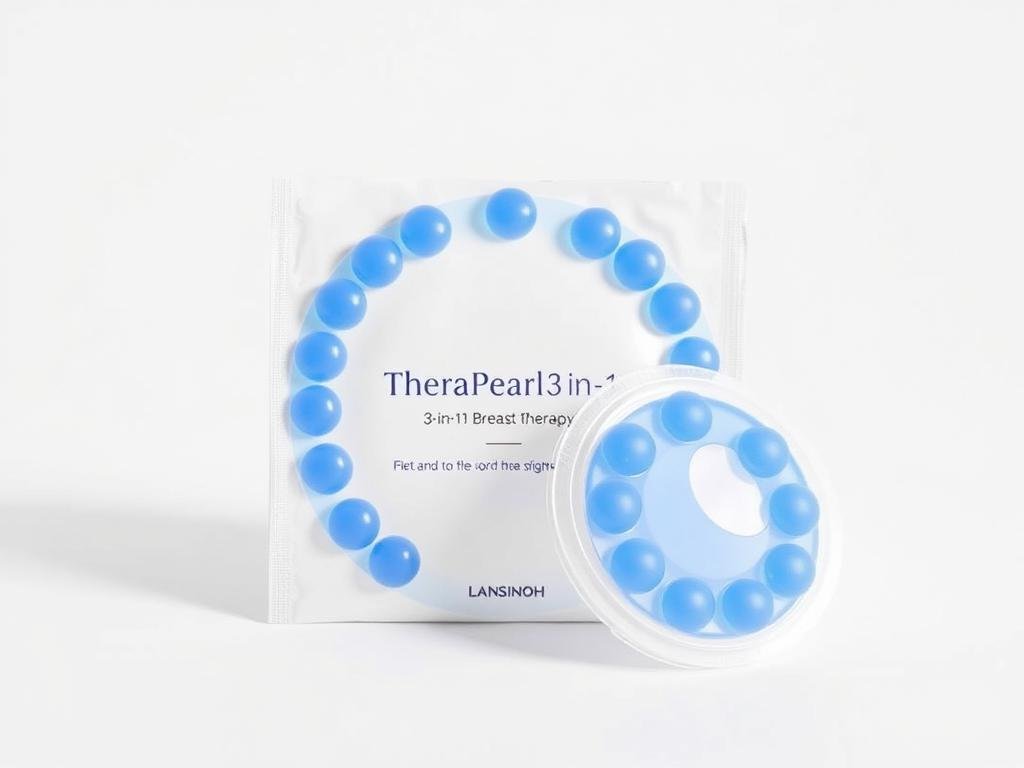
Lansinoh TheraPearl 3-in-1 Breast Therapy Packs for breastfeeding relief
Lansinoh TheraPearl 3-in-1 Breast Therapy Packs can be used hot or cold to address different breastfeeding challenges. Use them cold to reduce engorgement and swelling or warm to encourage milk flow and relieve plugged ducts. The flexible design conforms to your breast while the soft fabric cover provides comfortable contact with sensitive skin. These reusable packs are a versatile solution for common breastfeeding discomforts.
Cultural Practices in Postpartum Recovery

Different cultural postpartum recovery practices from around the world
Across cultures, there are diverse traditions surrounding the postpartum period that recognize it as a special time requiring specific care practices. Many of these traditions share common elements, including rest, support from family members, and special foods believed to promote healing.
In several Asian cultures, including Chinese, Korean, and Vietnamese traditions, new mothers observe a period of confinement lasting about a month. During this time, they stay indoors, avoid cold temperatures, consume warming foods, and receive help with baby care and household tasks from female relatives.
Latin American cultures practice “la cuarentena,” a 40-day period where new mothers rest, avoid certain activities, and eat specific foods to restore balance to the body. Family members, particularly the woman’s mother or mother-in-law, provide extensive support during this time.
In many African traditions, new mothers and babies remain at home for a period while female relatives provide care and teach baby care skills. Special foods, herbs, and massage practices are used to support recovery and milk production.
While not all cultural practices are supported by scientific evidence, the emphasis on rest, nutrition, and community support aligns with modern medical recommendations for postpartum recovery.
Postpartum Pain Relief Essentials
Dermoplast Pain Relief Spray provides fast-acting relief for perineal pain and discomfort after childbirth. The no-touch application delivers a cooling sensation and temporary numbing effect to sensitive areas. Containing benzocaine and menthol, this hospital-recommended spray helps soothe pain, itching, and burning while promoting healing. Keep it in your bathroom for quick relief during those first challenging weeks.
Transition to Primary Care After Postpartum
The transition from specialized obstetric care to routine primary care is an important aspect of postpartum recovery that often receives less attention. Most women have a postpartum checkup with their obstetrician or midwife around 6 weeks after delivery, but ongoing care is equally important.
During your postpartum checkup, your provider will assess your physical recovery, discuss birth control options, screen for postpartum depression, and address any concerns you have. This is an opportunity to ask questions about lingering symptoms or issues you’re experiencing. Don’t hesitate to bring up concerns about physical recovery, emotional well-being, or adjusting to parenthood.
After this visit, it’s important to establish or reconnect with a primary care provider for your ongoing healthcare needs. Many health issues that arise during the postpartum period, such as thyroid problems, persistent pelvic pain, or mental health concerns, may require follow-up beyond your initial postpartum visit.
If you’re breastfeeding, you may also benefit from continued support from a lactation consultant. Many hospitals and community organizations offer breastfeeding support groups that can provide both practical advice and emotional support as you continue your breastfeeding journey.
Postpartum Hygiene Essentials
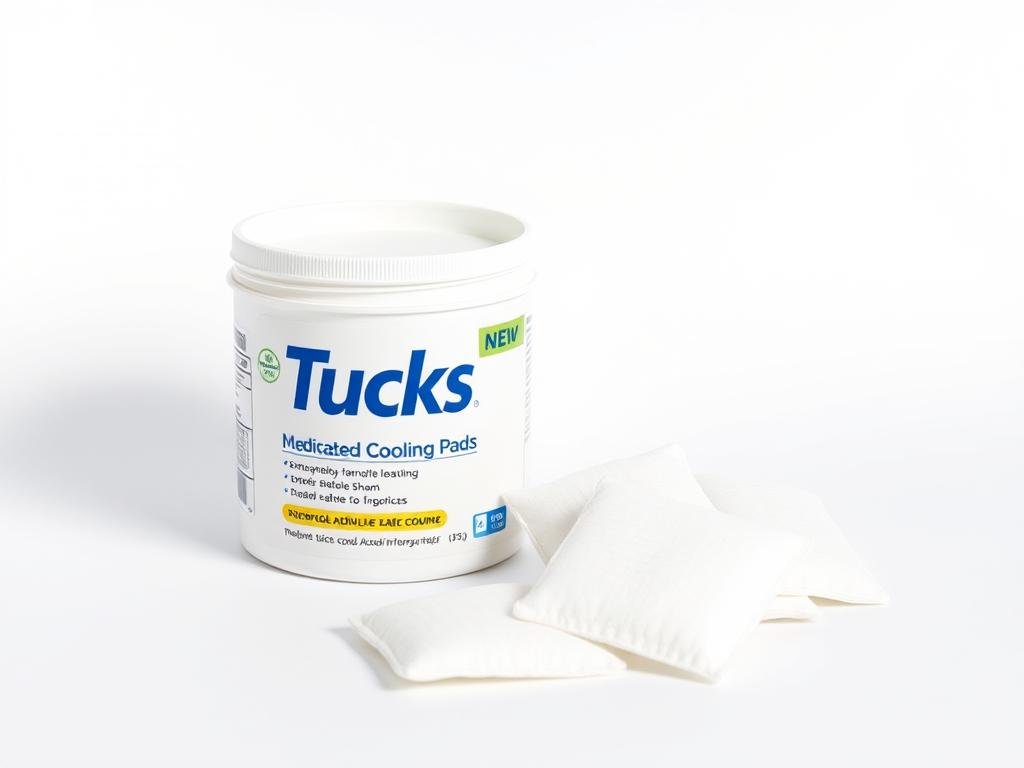
Tucks Medicated Cooling Pads for hemorrhoid and perineal relief
Tucks Medicated Cooling Pads provide soothing relief for hemorrhoids and perineal discomfort after childbirth. Infused with witch hazel, these pads deliver cooling comfort and help reduce inflammation in sensitive areas. Place them directly on irritated skin or layer them on top of your maxi pad for continuous relief. With 100 pads per container, you’ll have plenty for your postpartum recovery journey.
Essential Breastfeeding Supplies for Postpartum
If you choose to breastfeed, having the right supplies can make the experience more comfortable and successful. While breastfeeding is natural, it often comes with a learning curve for both mother and baby, and supportive products can help address common challenges.
A good nursing pillow positions your baby at breast height, reducing strain on your back, neck, and arms during feeding sessions. Look for one that’s firm enough to provide support but soft enough for comfort. Some designs also work well for bottle feeding or supporting baby during tummy time.
Nursing bras provide convenient access for breastfeeding while offering support for heavier, milk-filled breasts. Choose bras with easy-to-operate clasps that can be opened with one hand. Having several on hand allows for rotation when they need washing.
Nipple cream containing lanolin or other soothing ingredients helps prevent and heal cracked or sore nipples, especially in the early weeks as your body adjusts to breastfeeding. Apply after feeding sessions to keep the area moisturized.
Breast pads, either disposable or reusable, absorb leaking milk and prevent embarrassing wet spots on your clothing. Many women experience leaking, particularly in the early weeks when milk supply is establishing.
Essential Breast Pump for Nursing Mothers
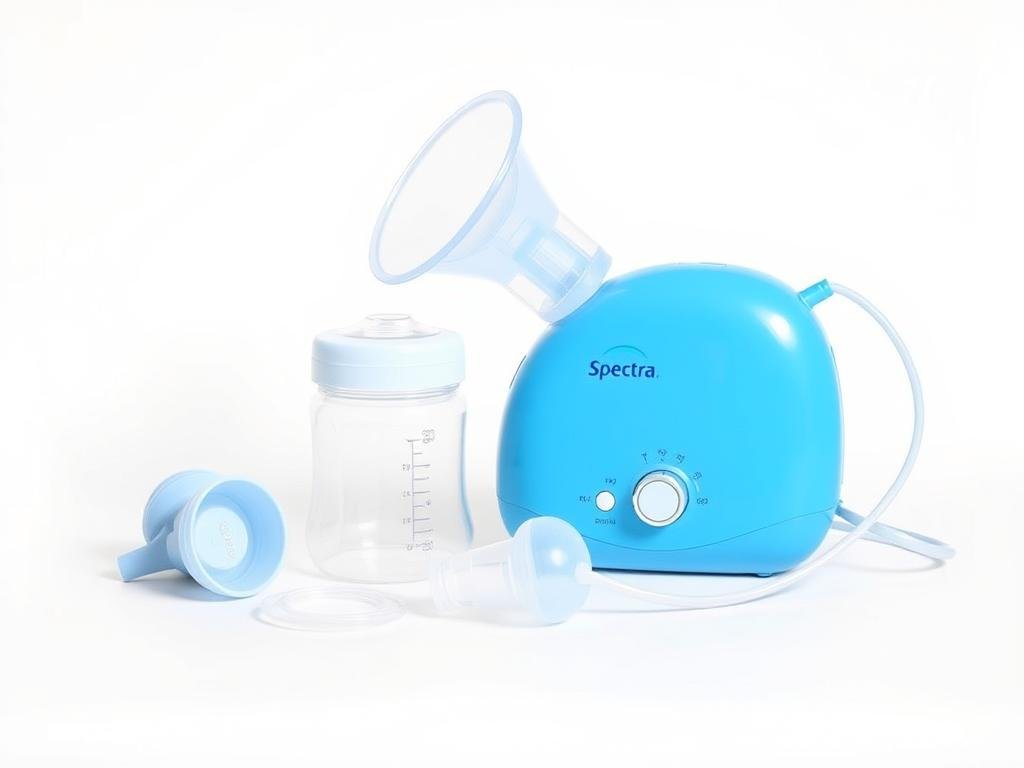
Spectra S1 Plus Electric Breast Pump for efficient milk expression
The Spectra S1 Plus Electric Breast Pump offers hospital-grade performance with the convenience of a rechargeable battery. Its closed system prevents milk from backing up into the tubing, ensuring hygiene and motor longevity. With adjustable suction levels and cycling speeds, you can customize your pumping experience for maximum comfort and efficiency. The quiet motor allows for discreet pumping, even when your baby is sleeping nearby.
Baby Care Essentials for New Mothers
While focusing on your own recovery, you’ll also be caring for your newborn. Having essential baby care items organized and accessible makes this dual responsibility more manageable. Creating stations around your home with commonly needed supplies can save time and reduce stress during this adjustment period.
Diapers and wipes are obvious necessities, but consider setting up multiple changing stations throughout your home. A portable caddy with supplies allows you to change your baby wherever is most convenient. Diaper rash cream should be applied at the first sign of redness to prevent more serious irritation.
Swaddle blankets help recreate the secure feeling of the womb, potentially improving sleep for your newborn. Look for blankets specifically designed for swaddling or consider swaddle sacks with Velcro or zippers for easier application, especially during middle-of-the-night changes.
A digital thermometer designed for infants is essential for monitoring your baby’s health. Rectal thermometers provide the most accurate readings for newborns, though temporal or axillary (armpit) options are also available.
Burp cloths protect your clothing from spit-up during and after feedings. Having plenty on hand means less frequent laundry. Similarly, bibs catch drool and milk dribbles, keeping baby’s clothes drier and reducing outfit changes.
Baby Care Essentials
Earth Mama Organic Diaper Balm provides gentle, effective protection for your baby’s delicate skin. Made with organic herbs and oils, this balm creates a moisture barrier without petroleum, parabens, or artificial fragrance. The calendula-infused formula soothes irritated skin while zinc oxide helps prevent diaper rash. Safe for cloth diapers and gentle enough for sensitive newborn skin.
Self-Care During the Postpartum Period
Self-care is not a luxury during the postpartum period—it’s a necessity for your physical and emotional well-being. Taking care of yourself enables you to better care for your baby, yet many new mothers struggle with guilt when prioritizing their own needs.
Start with basic physical self-care: shower regularly, brush your teeth, change into fresh clothes, and eat nutritious meals. These simple acts can significantly impact how you feel. Keep healthy snacks and water bottles stationed around your home for easy access during feeding sessions.
Sleep deprivation is one of the biggest challenges of early parenthood. While “sleep when the baby sleeps” is common advice, it’s not always practical. Instead, look for opportunities to rest, even if you don’t sleep. Consider taking shifts with your partner for night feedings if possible, or ask a trusted friend or family member to watch the baby while you nap.
Mental and emotional self-care might include setting boundaries with visitors, connecting with other new parents, or engaging in brief activities you enjoy, such as reading, listening to podcasts, or gentle stretching. Even five minutes of intentional self-care can provide a mental reset.
Remember that asking for and accepting help is a form of self-care. Be specific about what would be most helpful, whether it’s dropping off a meal, holding the baby while you shower, or handling a load of laundry.
Postpartum Recovery Garments
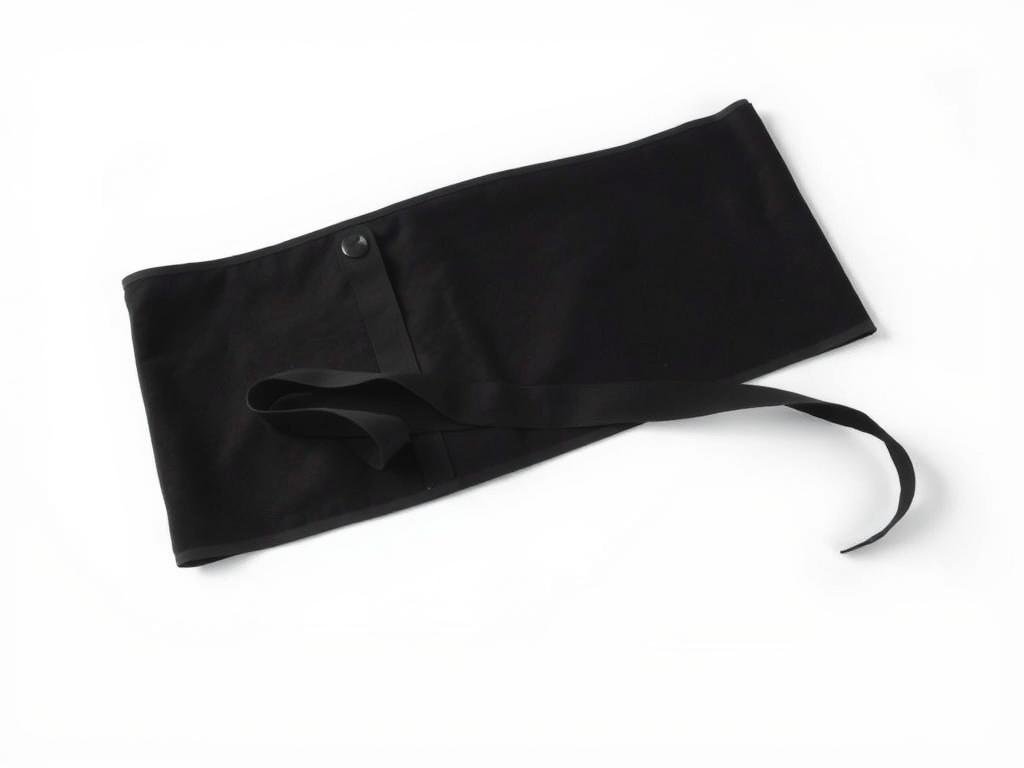
Belly Bandit Original Postpartum Belly Wrap for abdominal support
The Belly Bandit Original Postpartum Belly Wrap provides gentle compression to support your recovering abdominal muscles and uterus. This medical-grade compression band helps reduce swelling, supports your back, and may help your body return to its pre-pregnancy shape more quickly. The adjustable closure allows you to tighten the wrap as your body changes, providing customized support throughout your recovery journey.
Embracing Your Postpartum Journey
The postpartum period is a time of tremendous change and adjustment. By equipping yourself with the right essentials and knowledge, you can navigate this transition with greater confidence and comfort. Remember that every mother’s journey is unique, and there’s no single “right way” to experience postpartum recovery.
As you move through this transformative time, be gentle with yourself. Your body has accomplished something remarkable in growing and delivering your baby, and it deserves care and patience as it heals. Similarly, your emotional adjustment to motherhood is a process that unfolds gradually, with both challenges and profound joys along the way.
The postpartum essentials we’ve discussed are designed to support your physical recovery, ease discomfort, and simplify baby care, allowing you to focus on what matters most—bonding with your little one and adjusting to your new normal. While these products can make a significant difference in your comfort and well-being, remember that the most important elements of postpartum recovery are rest, proper nutrition, hydration, and emotional support.
Reach out to your healthcare provider with any concerns about your physical or emotional health during this time. Connecting with other new mothers through in-person or online communities can also provide valuable support and perspective as you navigate the joys and challenges of early motherhood.
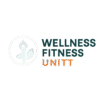


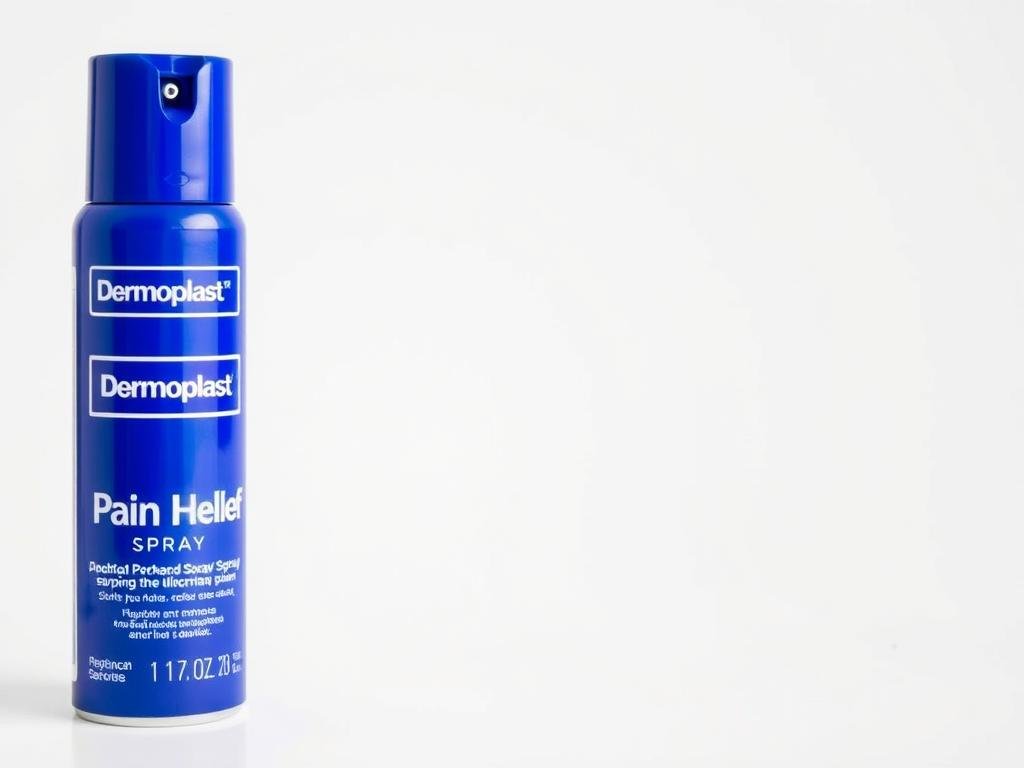

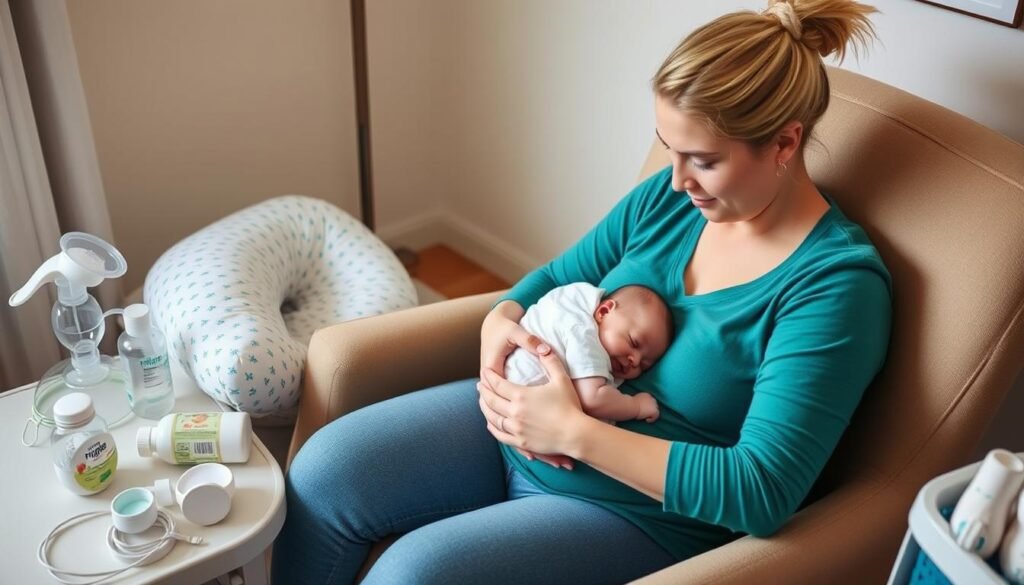
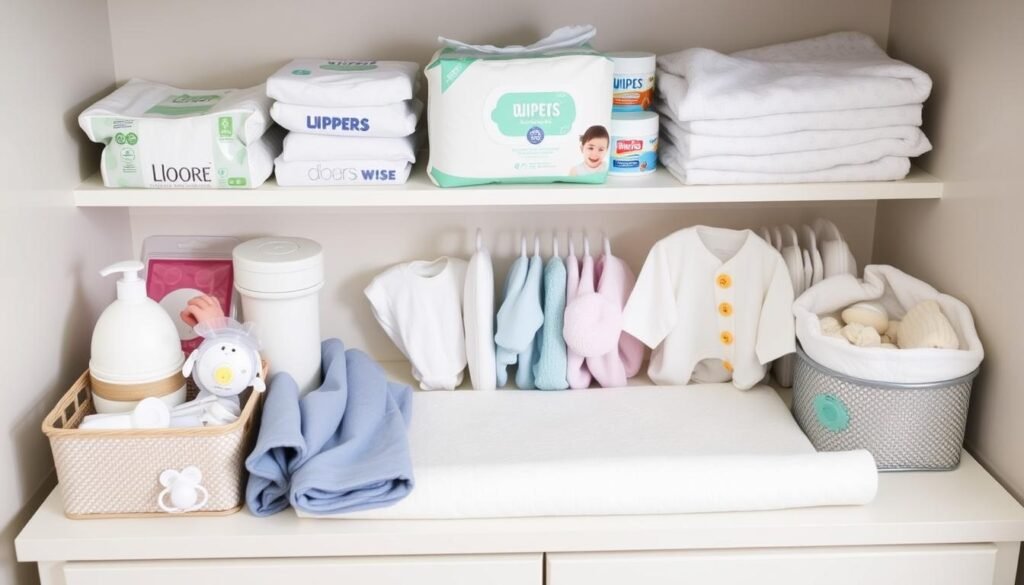
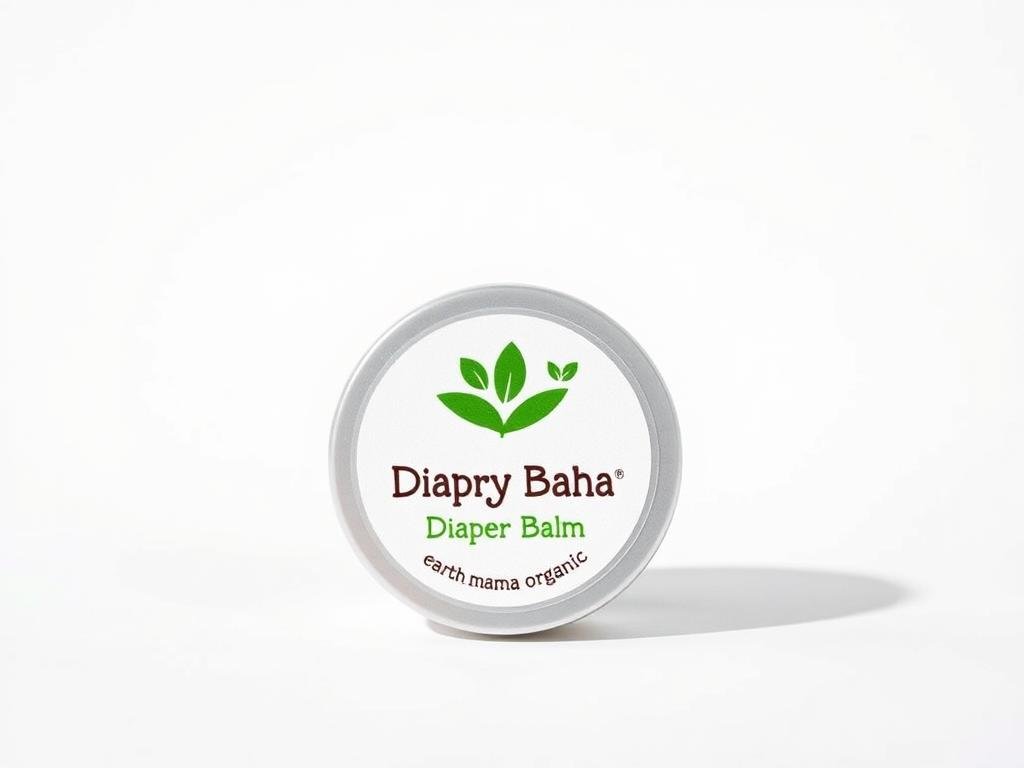


Pingback: Prenatal Yoga: 12 Gentle Poses for Expecting Moms
Pingback: Safe exercise tips for a healthy pregnancy